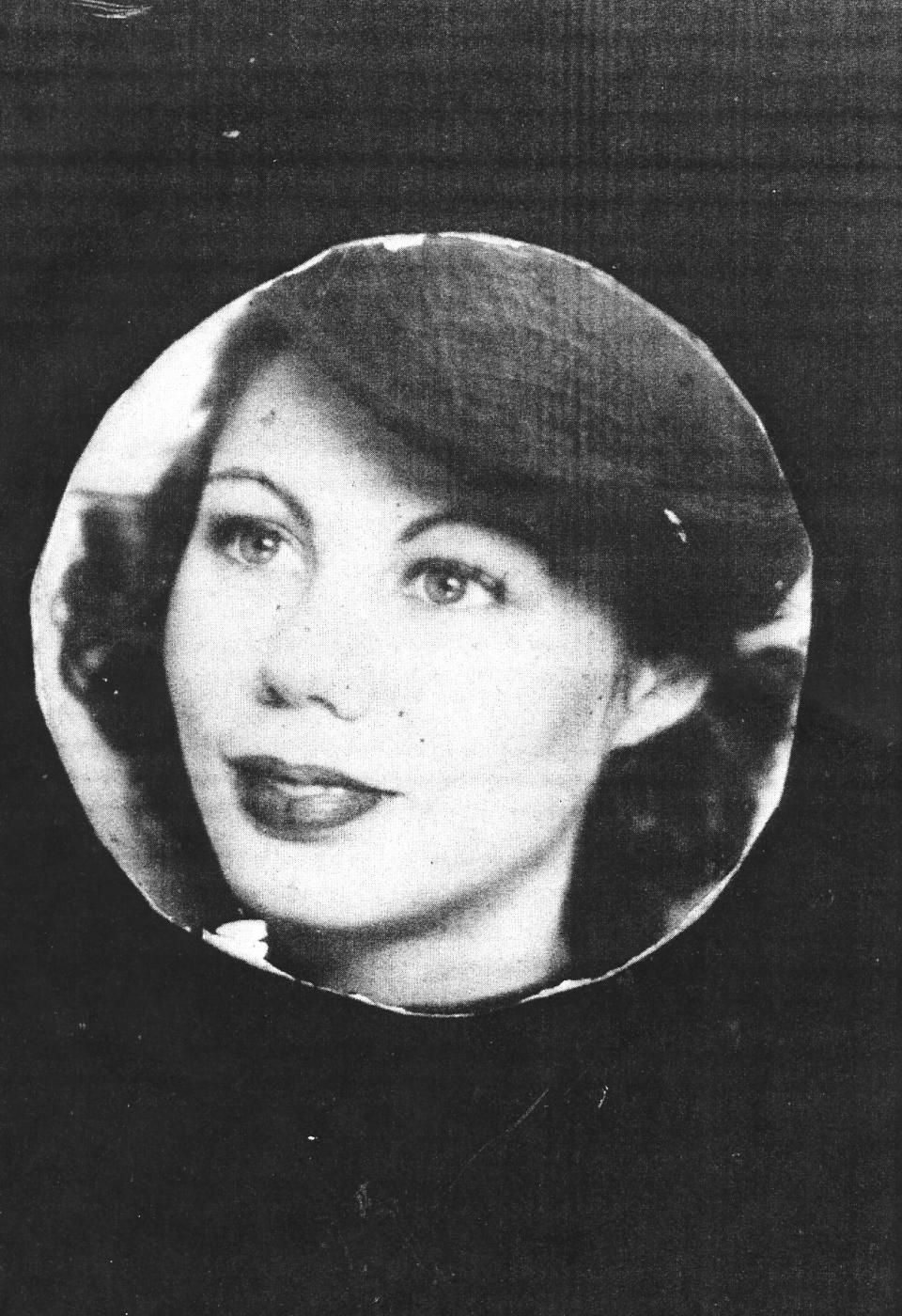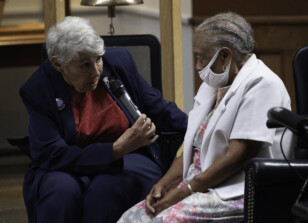USA TODAY’s Women of the Year: Anne Montague immortalizes the real-life Rosie the Riveters
Anne Montague is one of USA TODAY’s Women of the Year, a recognition of women who have made a significant impact in their communities and across the country. The program launched in 2022 as a continuation of Women of the Century, which commemorated the 100th anniversary of women gaining the right to vote. Meet this year’s honorees at womenoftheyear.usatoday.com.
CHARLESTON, WV — Anne Montague was chosen as the West Virginia honoree of USA TODAY's Women of the Year program for her efforts to immortalize the stories of the Rosies, the women who took over the workforce during World War II.
At five years old, Montague routinely woke up in a twin-sized bed between her mother, Jessie Jacobs-Frazier, and the wall. Her father was overseas, fighting in World War II. She would watch her malnourished mother get up, put on a handmade dress, transform her face with makeup, and leave for a day of work.
It would be decades later, after her mother’s passing, that Montague realized her mother was one of many women who entered the workforce during World War II. Named after the iconic Rosie the Riveter, the Rosies jumped in to fill the jobs the military men left behind, often hard construction jobs creating the machines the men would then use overseas. Montague’s mother worked for Polan Industries in Cabell County, making and inspecting lenses for binoculars, guns, and periscopes.
Though she could no longer ask her mother about her experiences, her mother was far from the only Rosie. Montague set out to find them in 2009. She was running out of time — like World War II veterans, the Rosies were then in their seventies, eighties, and nineties. Her mother’s photo ran in the Charleston Gazette with a call for the Rosies to reach out. It worked, and within two weeks, she had 14 interviews to schedule.
Her work came together into the American Rosie Movement, moving from small town West Virginia to The New York Times. The interviews turned into We Pull Together: Rosie the Riveters, Then and Now, a documentary Montague executive produced. The film is now available for free online, and features riveters who worked on planes for both the American and British armies.
For the past 15 years, Montague has worked to preserve hundreds of Rosies' histories, memories, and stories. She’s pushed governments to name West Virginia locations named after the Rosies, such as The Rosie the Riveter Building on Park Avenue in Huntington and Rosie the Riveter Park in St. Albans.
Now she turns her attention to the rest of the country, hoping to inspire a movement to bring people together in divided times by documenting the Rosies, while the United States still has the opportunity.
“Five years from now, there will be an American Rosie movement,” Montague said. "It's all about unity. It's all about family."
This conversation has been edited for length and clarity.
Who paved the way for you?
I honestly did not know until just a few years ago just how powerful my mother's influence was on me. I used to watch mother get dressed for work in the mornings. My mother was so thin — her shoulder blades, her hip bones, her ribs all show. She didn’t have to wear a uniform or overalls or any of that. She was a wonderful seamstress, and she would really doll up. She goes to a small closet and pick a dress she’d made. I watched my mother dress, stage by stage, until she finally put on her lipstick. And she'd start looking beautiful before walking to the factory on a hill. Her head was held high with pride that she was doing something that had to be done.

What is your proudest moment?
My proudest moment was birth of my first child, knowing that I had put off having children for 11 years to get my husband through college.
I also have to say the first interview I did with a Rosie, I felt like I had found my place. It was handed to me that day. When I met Garnet Kozielec, the first Rosie that I interviewed, I saw the beauty in this woman, her belief in America, and her relief that she had somebody to tell her story. I had a tape recorder in my hand. The moment I left her house, I looked down at that tape recorder or in my hand, and that was a very special, special turning in my life.
What is your definition of courage?
I think society thinks it's more like the person in battle sacrificing their life, taking a chance, they might get killed. For me, as a woman who's studied and prepared myself for what I'm doing now, I feel that courage is knowing who you are, knowing what you need to do, and doing the darndest best you can. To me, the equivalent is perseverance.
Do you have a guiding principle that keeps you focused?
In the Rosie project, there have been two or three phrases that the women came up with. I love them. “We work better when we pull together.” A Rosie I interviewed in Hagerstown, Maryland, said they used to say that before they started work in the mornings. Another I like is from Woody Williams, a well-known medal of honor recipient of World War II, “We did it together.” That means we can keep doing it together.
My mother loved Lincoln and she quoted him a lot. I would go out on the porch with her to say goodbye and watch her go to work. And if I was particularly upset, she would have me repeat this. By the time I was five, I had memorized this, “I will study and prepare myself and someday my chance will come.”
How do you overcome adversity?
Perseverance. If you don't know who you are, find out who you are. Put yourself in some kind of situation and figure out who you are. If you have to live alone for a while, do it. People should know who they are, and once you know who you are, it's easy. From that point on, the frustrations come at you and you’re dodging the bullets all the time. Everything just becomes very natural for sure.

What advice would you give your younger self?
That's a hard one. There are stages of life, and you need different things in different stages of life. I don't think I could say “follow your curiosity” because I wasn't at that stage in life.
Be comfortable being alone and knowing who you are. Make something happen and make something happen that is of quality that nobody can take from you. It's not like getting a job that you make happen. It's all about inner knowing yourself as a person.
This article originally appeared on Staunton News Leader: USA TODAY honors organizer for the real Rosie the Riveters

